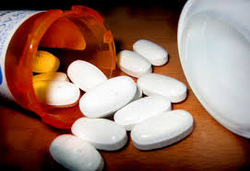There hasn't been any recent updated information of stem cell research on the almost ancient epidemic since the disease has morphed into much complicated and modern diseases that need farther research on rather then Yellow Fever.

No antiviral medications have proved helpful in treating yellow fever. As a result, treatment consists primarily of supportive care in a hospital. This includes providing fluids and oxygen, maintaining adequate blood pressure, replacing blood loss, providing dialysis for kidney failure, and treating any other infections that develop. Some people receive transfusions of plasma to replace blood proteins that improve clotting.
There is currently no cure for yellow fever -- once a person has become infected, the only thing he or she can do is wait for the body to kill the virus. Therefore, current treatment for yellow fever is focused on providing relief of symptoms as the body fights the yellow fever virus. Although there is no yellow fever cure, there is a vaccine that can provide protection for 10 years or more. The yellow fever vaccine is a live-virus vaccine that has been used for several decades. A single dose provides protection for 10 years or more. If a person is at continued risk for yellow fever infection, a booster dose is needed every 10 years. Adults and children over nine months old can be given this vaccine.